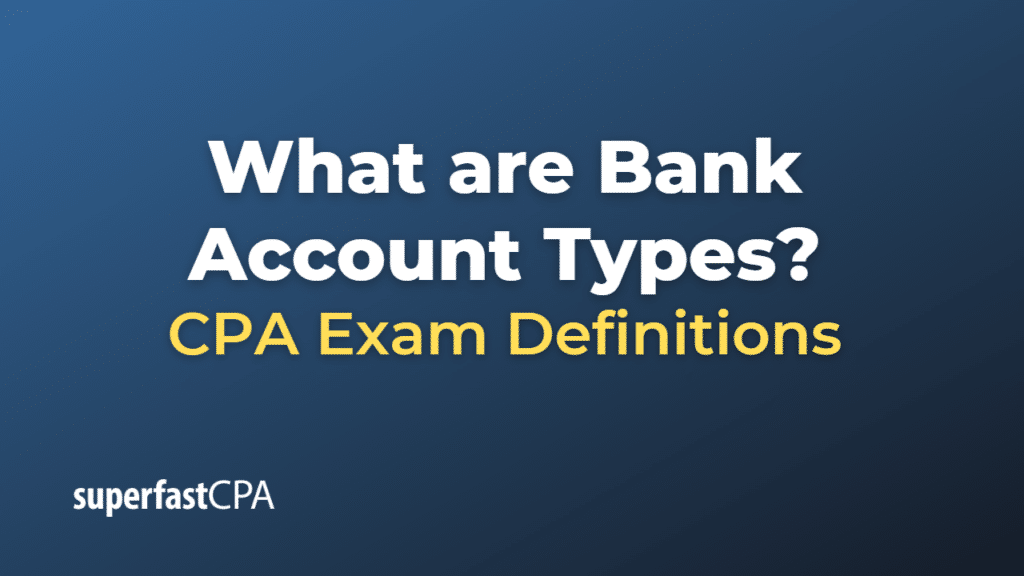Bank Account Types
Bank account types refer to the various kinds of accounts offered by banks to meet the diverse needs of customers. Some common bank account types include:
- Checking Account: A deposit account that allows for frequent transactions, such as deposits, withdrawals, and bill payments. It often comes with a debit card, check-writing privileges, and online and mobile banking access.
- Savings Account: A deposit account designed to help customers save money while earning interest. These accounts typically have lower interest rates compared to other interest-bearing accounts, and they may have transaction limits.
- Money Market Account: A type of deposit account that offers a higher interest rate than a standard savings account. It may also provide check-writing privileges and a debit card, but usually has a higher minimum balance requirement and transaction limits.
- Certificate of Deposit (CD): A time deposit account that offers a fixed interest rate for a specified term, usually ranging from a few months to several years. CDs have a predetermined maturity date, and withdrawing funds before that date may result in penalties.
- Individual Retirement Account (IRA): A tax-advantaged account designed to help individuals save for retirement. There are two main types of IRAs – Traditional and Roth – each with its own tax benefits and contribution limits.
- Joint Account: A bank account shared by two or more individuals, usually family members or business partners. All account holders have access to the account and can perform transactions.
- Business Account: A bank account specifically designed for businesses, providing features and services tailored to the needs of business owners, such as payroll management, merchant services, and invoicing.
These are some of the main types of bank accounts available. Each bank may offer variations of these accounts with different features, fees, and interest rates to cater to the specific needs of their customers.
Example of Bank Account Types
Let’s assume Jane and John are a married couple who want to open different types of bank accounts to manage their finances. Here’s an example of how they might utilize various bank account types:
- Checking Account: Jane and John open a joint checking account with their local bank to manage their day-to-day expenses. They deposit their paychecks into this account and use it to pay bills, make purchases with a debit card, and write checks for rent and other expenses.
- Savings Account: The couple decides to open a savings account to set aside money for future expenses, such as vacations, emergencies, and home improvements. They set up an automatic transfer from their checking account to their savings account each month to ensure they consistently save money.
- Money Market Account: Jane and John receive a bonus from their employer and decide to deposit it into a money market account. This account offers a higher interest rate than their savings account, and they can access the funds when needed while still earning interest.
- Certificate of Deposit (CD): They also decide to invest in a 2-year CD to save for a down payment on a new car. They deposit $5,000 into the CD, which has a fixed interest rate, and agree not to withdraw the funds until the CD matures in two years.
- Individual Retirement Account (IRA): Jane and John each open a Traditional IRA to save for retirement. They contribute a portion of their income every year, benefiting from the tax advantages of these accounts.
- Joint Account: Their checking and savings accounts are joint accounts, allowing both Jane and John to access the funds, make deposits, and perform transactions as needed.
- Business Account: John starts a small business and opens a separate business account to manage the company’s finances. This account helps him track expenses, receive payments from clients, and pay his employees.
In this example, Jane and John utilize various types of bank accounts to manage their personal and business finances, save for future expenses, and plan for retirement.













